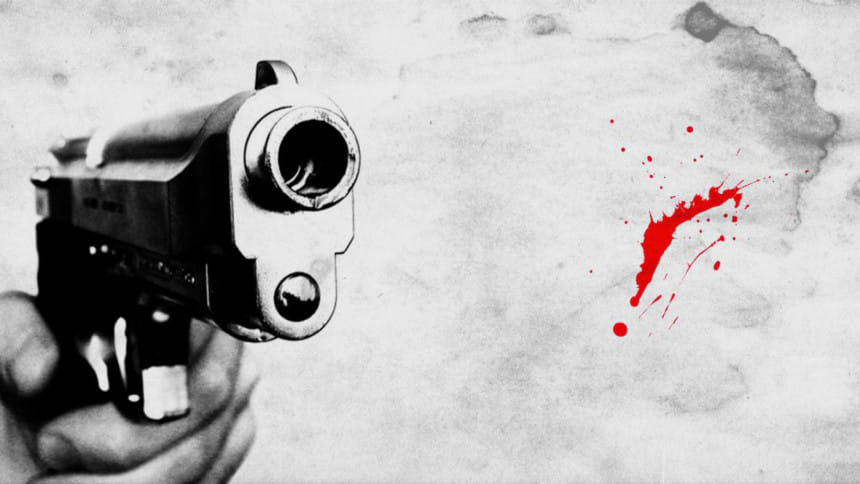Extrajudicial execution has no place in democracy

When ordinary people whose life is mostly dictated by the day-to-day compulsions speak in desperate terms, they can be excused. The norms and nuances of an orderly, law-bound existence may sometimes elude them or, even if they don't, may not be of much significance to them. So few would be surprised if discussions on the dynamics of a civilised society appear fruitless to the ordinary people. But when lawmakers sitting in parliament speak in a rash and brazen manner, and fail to appreciate the gravity of such action, it is worrisome indeed. We are talking about the recent statements by some lawmakers in support of extrajudicial killings to punish rape suspects without giving them the benefit of the due process of law.
In view of the lawmakers' endorsement of "crossfire" as a means to address the scourge of rising rape crimes, it bears repeating that the practice of breaking the law in the name of law enforcement is totally unacceptable, and has no place in a democratic society bound by the law. It is also objectionable because it is arbitrary as a process and random in its effects. A democratic polity venturing to maintain order by repression and criminality is actually creating the ultimate disorder because, by resorting to such measures, it makes rule of law contingent on violence and subject to individual interpretations.
We have to remember that law enforcement is a field of activity where the powerful and the powerless come face-to-face, metaphorically speaking, and the responsibility of the law enforcement is to make sure this "interaction" takes place following the law. The law enforcement agencies are expected to uphold the spirit of the law at all times. Therefore, the theory that those who cannot be taken care of within the law should be dealt with outside the law is preposterous and, not to mention, has no place in the world of law enforcement.
Unfortunately, what we are seeing today is a worrisome trend in which result-oriented investigating officers are increasingly inclined to resort to short-cut methods to please their bosses or political masters. The worrisome part is the threat to put an alleged criminal or an ordinary suspect in a "crossfire" situation as part of some ulterior motive.
Since most crossfire deaths are not seriously investigated for establishing culpability, the culprits in the enforcement and investigative apparatuses take advantage of this situation. Elements of accountability and fear recede into the background, creating a culture of impunity, while investigation by the book becomes less of a priority.
Professionally speaking, this is an instance of heightened jeopardy because, in Bangladesh, the crime fighting machinery already stands accused of not cultivating a scientific modus operandi and, quite often, relapsing into the role of a force using third-degree methods.
The question is, do we want a sustained, laborious undertaking under the law to strengthen our democratic foundation, or do we want rash, desperate action unsupported by the law? The crossfire incidents, undoubtedly, do not fit in with the first proposition. We need to be absolutely clear about that.
One can also interpret these incidents as a summary action from the desperate executives of law enforcement struggling with the high crime rates. Leaving aside the issue of the legality of actions leading to adoption of such means, any responsible citizen might like to know if, in our often-over-zealous anti-crime operations, we are just treating the symptoms without venturing to make an objective study of the conditions promoting criminality.
We do not need any sociologist or criminologist to tell us that present-day crimes are a complex social phenomenon caused by a multiplicity of factors, and so determining culpability can be a very tricky and exacting job at times.
Everyday life experience tells us that often the fun-seeking delinquent teenagers grow to become a threat to society thanks to the patronage of powerful quarters and the inaction or negligence of the law enforcement outfit. Therefore, when deaths occur in so-called "crossfire" incidents, some myopic elements may be satisfied but a civilised society that wishes to live by the cannons of law cannot but be concerned.
The culture of extrajudicial killings in "crossfire" is forestalling the benefits of thorough investigations, which could give the citizens a better picture of the pathetic yet compelling factors responsible for the rise of criminals, the shady role played by their patrons, and the alleged inertia of the regulatory units.
What we need, therefore, is adequate provision of witness protection and victim support in the criminal justice administration. To make these effective, we need a heavy injection of government funds for the purpose. Any further delay in the process will only swell the ranks of summary justice seekers and the admirers of vigilante action. Also, the plight of the victims of "crossfire" incidents needs mainstream attention.
A criminal, whatever their crime and however gruesome it may be, has a right to the due process of the law. Their alleged crime does not give anyone a license to resort to illegal measures to punish them because a democratically elected government must always strive to demonstrate—through words as well as action—that law enforcement and civil liberties can co-exist in society.
Muhammad Nurul Huda is a former IGP.

 For all latest news, follow The Daily Star's Google News channel.
For all latest news, follow The Daily Star's Google News channel. 



Comments